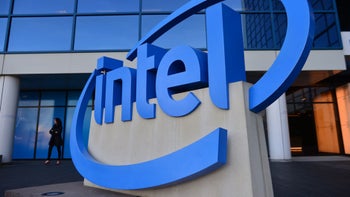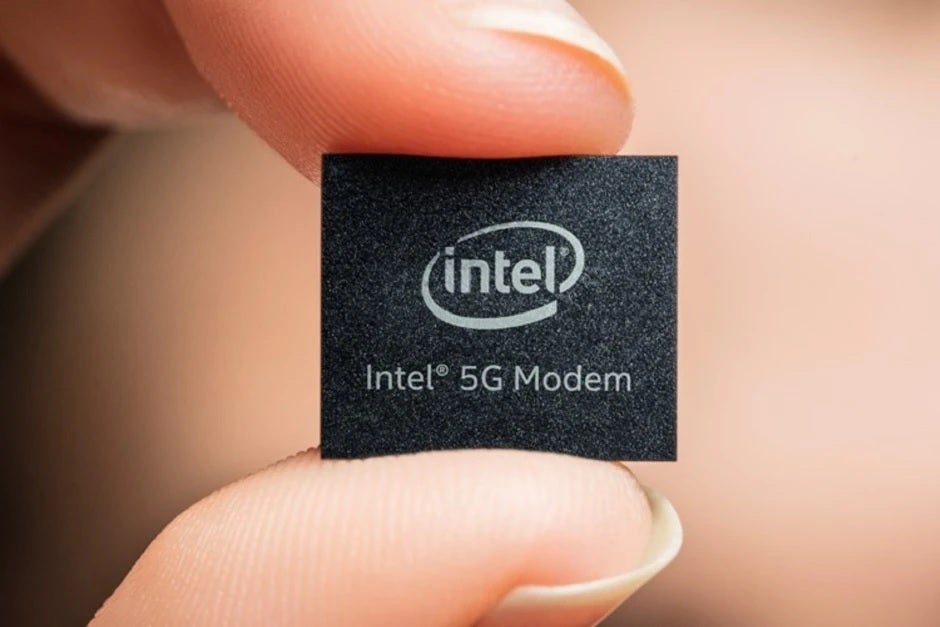Intel to build chips for Qualcomm; hopes to rival TSMC, Samsung by 2025

TSMC and Samsung, the two top contract foundries in the world, will soon have a new rival. Reuters reports that yesterday Intel announced that it will start producing chips for other companies such as Qualcomm and Amazon. Intel expects to challenge TSMC and Samsung by 2025.
Intel hopes to become a rival to TSMC and Samsung by 2025
Intel was once the T-Rex of chipmakers, but Taiwan's TSMC has become the global leader with Samsung right beside it. Both of those firms produce chips for Apple, Qualcomm, AMD, and other top tech companies. The pair also currently manufacture chips using 5nm process nodes and have roadmaps down to 2nm. As an example of what each of the two foundries can offer, TSMC is the foundry rolling out Apple's M1 chip that carries a whopping 16 billion transistors (no typo here folks) in each chip.

Apple was planning to use Intel's 5G modem chip on its first 5G phones
Intel says that over the next four years, it will introduce five new technologies related to the production of these vital components. One of the five is the introduction of Intel's first new transistor design in ten years. As early as 2025, Intel will get its hands on ASML's next-generation extreme ultraviolet lithography (EVL) machines that place on the silicon an image of where the circuitry will be placed.
The EVL machine is important because it needs to produce extremely thin lines as transistor size shrinks allowing foundries to pack more transistors inside the components they manufacture. Intel also plans on revamping the way it names its chips to be more in line with TSMC and Samsung. Dan Hutcheson, chief executive of VLSIresearch, an independent semiconductor forecasting firm, said that Intel's current naming protocol gave the impression that the company was less competitive.
The larger the number of transistors that fit inside a square mm, the more powerful and less energy-guzzling a chip is. And while Intel has been losing the process node war with TSMC and Samsung, it does plan to reveal a design for transistors smaller than 1nm by 2024.
Intel's first major new customers will be Qualcomm and Amazon. The former is known for the Snapdragon chips that drive mobile phones with some helping to connect handsets to 5G networks. These chips will use Intel's 20A manufacturing technique that will produce chips that consume less power than current components thanks to the use of new transistor technologies.
Analysts wonder whether Intel will be able to deliver on its promises
Amazon plans on using Intel's packaging technology for the components it produces itself for the data center chips used for its Amazon Web Services. Intel Chief Executive Pat Gelsinger stated that "There have been many, many hours of deep and technical engagement with these first two customers, and many others."
While some analysts remain cautious about whether Intel can deliver on the promises it has made, Real World Technologies' David Kanter said that the chipmaker is being more cautious than it has been in the past. He says, "Intel is absolutely going to catch up, and be ahead in some dimensions, with TSMC over the next few years. Intel really does have people who spend all their time looking at how to deploy new materials and technology to juice their performance."
You might recall that a legal feud between Apple and Qualcomm had Apple scrambling for a 5G modem chip to replace the one it wanted from Qualcomm. Apple planned on using a new 5G modem chip designed and produced by Intel. But Apple wasn't thrilled about this and eventually reached a settlement that allowed it and Qualcomm to bury the hatchet resulting in the use of Qualcomm's 5G modems on the iPhone 12 line, the first iPhone models to support 5G.
Eventually, Apple plans on designing its own 5G modem chip and ended up purchasing most of Intel's smartphone modem business in July 2019 for $1 billion.










Things that are NOT allowed: